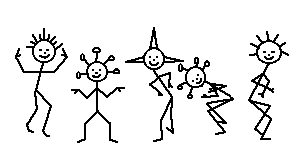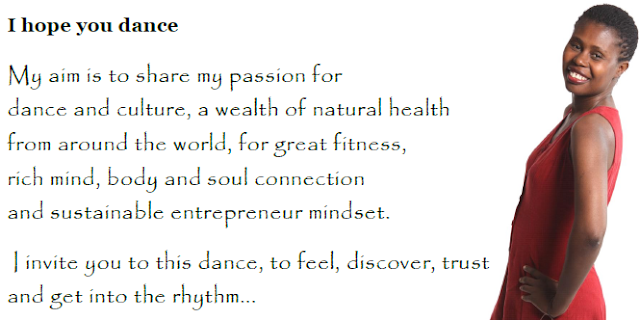Music of Latin America influences
Latin American music has influenced much of what you hear on popular music radio stations, and has entered into almost every branch of the entertainment industry, videos, television, films, even advertisements.
The "Latin beat" has taken the world by storm more than once and it remains a constant in rock, pop, hip hop, jazz and reggae. You'll hear it in the clubs, and you'll definitely hear it once you listen to your travel agent and book one of those Caribbean cruise deals.
Latin music and the Latin dancing that goes along with it is not all the same, as many from outside the Latin cultures of Central America, South America and the Caribbean believe. Each culture has its own musical signature because each has developed separately from the others.
What you hear on one island, or in a country that speaks predominantly Portuguese, will not be the same as what you hear in a Spanish speaking nation or island. Even music that uses the same language can often be significantly different from that produced in a neighbouring region.
If you listen to them you will notice that the language is the same but the beats and arrangements are completely different. Some are fast, some are slow, and some require a half or quarter step when dancing.
>
Please take a moment to tell me about your observations or any particular comment you may have about Got Rhythm: The Music Of Latin America
Share freely...
About the author: Sarah Van Rensburg is a travel lover and avid writer, focussing on a range of travel topics particularly cruise holidays.
The "Latin beat" has taken the world by storm more than once and it remains a constant in rock, pop, hip hop, jazz and reggae. You'll hear it in the clubs, and you'll definitely hear it once you listen to your travel agent and book one of those Caribbean cruise deals.
Latin music and the Latin dancing that goes along with it is not all the same, as many from outside the Latin cultures of Central America, South America and the Caribbean believe. Each culture has its own musical signature because each has developed separately from the others.
What you hear on one island, or in a country that speaks predominantly Portuguese, will not be the same as what you hear in a Spanish speaking nation or island. Even music that uses the same language can often be significantly different from that produced in a neighbouring region.
Music of Latin America Dances
Dominican Merengue and Bachata, the Cuban Rumba, and Puerto Rican Salsa, Bomba and Plena are all musical styles from Spanish-speaking island nations in the Caribbean.
Afro-Cuban rumba is entirely different than ballroom rumba,
or the African style of pop music called rumba
or the African style of pop music called rumba
If you listen to them you will notice that the language is the same but the beats and arrangements are completely different. Some are fast, some are slow, and some require a half or quarter step when dancing.
These differences can also be seen in the Colombian Cumbia, the Brazilian Samba, the Ecuadorian Bomba del Chota and Marimba music, the Candombe and Murga rhythms from the River Plate, and Afro-Peruvian rhythms of Festejo, Landó, Panalivio, Socabón, Son de los Diablos, and Toro Mata.
 |
| Brazilian dancer Mel Britto performs as Drum Queen of the Caprichosos samba school during Rio de Janeiro’s Carnival parade in the Sambadrome February 26, 2006 |
 |
| The word Brazilian Samba comes from Quimbundo language. One meaning is to pray, or invoke the spirits of the ancestors, or the Gods of African pantheon. |
There are common threads that run through some of these but for the most part they are completely different from each other.
 |
Africans arrived in Peru as part of the Spanish trade
between the 16th and the 19th centuries.
Their contribution to music and dance
created a fusion known as landò |
>
Whatever your individual musical preferences might be, there is most likely a Latin beat of some kind that will be music to your ears. If you hear one and you don't like it, try something different. There are dozens to choose from and each has a history that will be worth reading up on.
Knowing the roots of a type of music can help you to connect with it just like knowing the history of a culture can help you understand its people. Learning about their music is a good first step.
Knowing the roots of a type of music can help you to connect with it just like knowing the history of a culture can help you understand its people. Learning about their music is a good first step.
Please take a moment to tell me about your observations or any particular comment you may have about Got Rhythm: The Music Of Latin America
Share freely...
I'm Turenne. I welcome you warmly in this journey of creative passion for total health and wealth that I express as inspirations to fully stir our vital energy... and dance our soul...
 |
| Dance, stir your vital energy and Be in every moment! |
About the author: Sarah Van Rensburg is a travel lover and avid writer, focussing on a range of travel topics particularly cruise holidays.
About me:Turenne°Portrait
VIEW: In each text, capture the vital and creative energy that best convey Soul Dance for your delight.
Let us hear your voice in a comment below
Let us hear your voice in a comment below





No comments:
Post a Comment